
ENVISION AN EPISODE of your favorite workplace sitcom centering around a protagonist's troubles, triumphs and, at times, failures. When it comes to TV, we love watching drama unfold.
The next time your heart races at the sight of a squabble between backyard birds, remember this comparison. The behavior is normal and showcases fascinating parallels between how birds and humans handle conflict.
Mindset Matters
The emotional upset we experience when witnessing our feathered friends fighting is called anthropomorphizing. That means we're attributing common human characteristics or behaviors to them.
Humans' social behavior is complex and nuanced. We present ourselves differently in various situations to achieve a conscious or subconscious goal. Birds are bright, but ultimately they are fighting to survive. And while many of us dislike strife, birds do too! Both humans and birds go out of their way to avoid ruffling feathers.
Citizen Science Research
When it comes to backyard battles, there are some consistent winners and losers. Eliot T. Miller, a Schmidt Science postdoctoral fellow based at The Cornell Lab of Ornithology, has studied birds' interactions extensively based on behavioral research from Project FeederWatch data.
"The idea was to ultimately collect a big enough dataset that we could address some big-scale, macroecological questions," Eliot says.
Curious Conclusions
This story is from the {{IssueName}} edition of {{MagazineName}}.
Start your 7-day Magzter GOLD free trial to access thousands of curated premium stories, and 9,000+ magazines and newspapers.
Already a subscriber ? Sign In
This story is from the {{IssueName}} edition of {{MagazineName}}.
Start your 7-day Magzter GOLD free trial to access thousands of curated premium stories, and 9,000+ magazines and newspapers.
Already a subscriber? Sign In

Basics of Hydroponics
Use these top tips and plant picks to have a successful soil-free garden
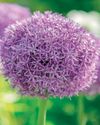
Rooted in Resilience
These hardy perennials will thrive in most zones
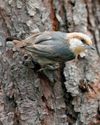
Social and Supportive
Brown-headed nuthatches take a helpful approach to raising their young
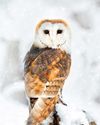
All About Owl Pellets
And why you should give a hoot about them
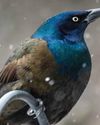
Ask the Experts
Advice from our pros about houseplants, bird feeding and more

BRING THE OUTDOORS IN
Making a terrarium is about as close as you can get to a Zen DIY project. Once you have gathered the proper materials and squared away your plant selections, it's as simple as layering it all together and watching your mini ecosystem thrive. Here, I'll walk you through my foolproof process and cover all the required elements for good filtration, healthy soil, strong root growth and resistance against fungus and disease.

GROW THIS. NOT THAT
Six easy-to-grow houseplants—and six that may not be the right choice for you

Winter MAGIC
Forecasts may be frigid, but grab your binoculars because birding opportunities are still incredible
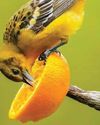
Sense or Nonsense? - Why some birds can taste and smell - but others can't
Does a porcelain berry taste like a blueberry to a gray catbird? Does a block of lard smell like frying bacon to a northern flicker? The short answer is no. While some avian species do have a well-adapted sense of taste or smell, they can't distinguish between flavors and odors the way humans can. They're not picking up every ingredient in the suet you put out, says José Ramírez-Garofalo, an ornithology researcher at Rutgers University in New Jersey and the director of Freshkills Biological Station in Staten Island, New York.

Maple Mania - Amazing facts about this fall foliage mainstay
Amazing facts about this fall foliage mainstay